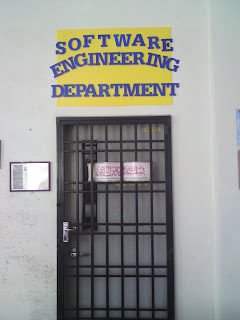Assalamualaikum and Dear all FSKSM staff and students,
A visit by Prof. Alan Dix (http://www.comp.lancs.ac.uk/~dixa/) from Lancaster Uni., UK. There will be a talk as follows :-
Date : 9 Dec 2010
Time : 3pm - 5pm
Venue : BK2 N28 FSKSM, UTM JB
Schedule for Alan's Talk :
9 December 2010 (Thursday) | 10am (Student Session) 10.30 am – 1 pm | Discussion session with PostGrad Students at Software Engineering Dept., FSKSM Venue : -TBC- |
3 pm – 5 pm | SE Seminar (Open) - See below !! Venue : BK2 | |
10 December 2010 (Friday) | 9.00 am – 10.00 pm | Meeting with FSKSM Administration Staff |
10.00 am – 12.00 pm | Meeting with SE Dept. staff for checking SE programme | |
3 pm – 5pm | Extended discussion for future and research direction |
Prof Alan will give a talk on SE Seminar about - web of data, web of people, web of action
Abstract:
From human readable web pages, to formal semantics of linked data and the emergent social semantics of tags and folksonomies, we routinely look to the web as both a source of information and a place to put data. However, the web is also a locus of action: users want to get things done, whether booking a hotel room, or editing an online spreadsheet.
The boundaries between web and desktop interaction are blurring. On the one hand, the traditional PC desktop is now inhabited by widgets such as the Mac Dashboard, web fast-download apps such as Java Web Start or Adobe Air, and expanded browser functionality such as Chrome. On the other hand, computation and applications that once were part of the desktop are now hosted on the web (for example word-processing with Google Docs), and various technologies enable web applications to function even when users have no connectivity to the internet. Furthermore, in emerging markets such as India and China, this convergence will be total, as the sole computing experience for many will be through mobile devices and predominantly the web.
This talk will explore the premise that this emerging web will be a place of action, not just information, and that the purpose of global data is ultimately to serve human needs.
You are cordially invited esp. to Undergrad / Postgrad Students.
Regards,
M Firdaus Harun, SE. Dept.


